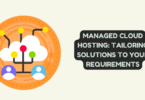
REACH FINANCIAL INDEPENDENCE ON A LOW INCOME: Guide to follow:
Financial independence is a nice theory. However, the reality is that anyone can achieve it. Whatever your current financial difficulties are, there is always a way to achieve financial independence. Here, we’ll discuss how to become financially independent even on a low income. Let’s see how, but first, we will try to understand financial independence.
WHAT IS FINANCIAL INDEPENDENCE? REACH FINANCIAL INDEPENDENCE IN LOW-Income:
For many people, achieving financial independence means many different things. Some people define it as having no debt and the ability to buy anything they desire. For others, it is creating a secure financial future, retiring early, or simply being wealthy. Everyone has their definition of financial freedom. For most people, it is about having enough money (in the form of savings, investments, and cash) to support their standard of living, as well as a savings account for retirement or the freedom to choose any career path without worrying about income. To become financially independent, you need to concentrate on the following three things:
- Earning money
- Saving money
- Invest your earnings and savings.
No matter your income level, everyone can achieve financial freedom. This is because it is based on your costs rather than the costs of millionaires.
Benefits of financial independence
The list is long if we talk about the top things we must think about in our future. But financial independence comes number one with these benefits.
| Prepares for Contingencies It is helpful during an emergency, an illness, injury, or job loss. | Early Retirement Long-term benefits of pursuing financial independence include the ability to plan early retirement. |
| Freedom to do what you want: Among the numerous advantages, Financial Independence can help in obtaining a home, relocating, traveling, taking up a new interest or business venture, giving money to charity, taking a work sabbatical, etc. | Living a Stress-Free Life When you become financially independent, you can continue to work without worrying about how you will pay for things or feeling stressed about it since financial independence allows you to be stress-free. |
Ways to achieve financial independence on a low income
It looks good when you see a good amount on your paystub monthly. The first step in achieving financial independence and building wealth is goal setting. No matter at what stage of life a person is in, commencing financial planning to become independent is crucial because it dramatically simplifies their future, and the advantages of economic freedom cannot be denied. Now we will look into how to reach financial independence on a low income.
Understanding your motivations
People may desire financial freedom for a variety of reasons. You could want to travel while you’re still young enough to enjoy it, or maybe you want to spend time with your family. You might also leave your work because you don’t enjoy it. Whatever it is, make sure it is crystal clear in your mind and that the motivation behind it is strong enough to keep you focused on reaching your goals.
Goal setting
You must be accurate about numbers and deadlines. The more specific goals are, the more chances of achieving them. What your lifestyle needs are, and how much money do you need in your bank account to accomplish that? What age is the limit for saving that much? It would help if you were specific about the amount you need to keep and the deadlines.
Calculate your saving rate
The percentage of your income you are saving is your savings rate. You must divide your monthly savings amount by your monthly net income to determine your savings rate. Try setting modest goals to increase your saving rates until you reach your desired level. Next, subtract your deadline age from your current age to arrive at your age, and set up financial checkpoints at regular intervals between the two dates. This will help you understand the time duration and the amount you can save.
Use cash whenever possible
Using cash is a much better approach to monitor your spending than using a credit card since you can see the money disappearing in front of you rather than waiting until you check your account to see the evidence of your purchases. It motivates you to reduce spending and make better financial decisions. It’s an easy yet powerful approach to cutting expenditures.
Pay off your debts
If you want to become a successful manager, then look at the seven critical resources for managers that you must possess. There are two primary ways to repay debt:
- Snowball: Paying off the smallest debt first is known as snowballing.
When you pay off a significant debt, you release a heavy burden off your shoulders. Even if you had to see the number decline at first, it’s still a fantastic feeling to see it rise, and it motivates you to keep increasing it.
Invest your tax return
While many people like receiving a large tax refund at the end of the fiscal year, this may seem counterintuitive. However, the reality is that when you have a significant tax return, you are lending the government more money than you could have by investing it in a way that would increase your earnings. The other issue with large tax refunds is that most people treat them like bonuses, spending all of it at once even though it is genuinely your money that you earned and should be invested.
Organize and minimize your spending
Organize the bills you pay and the number of accounts you have. Prepare yourself to put the things that matter most in your life first and to only spend money on something that will benefit you. Examine your expenditures over the previous year to determine which purchases didn’t provide you with enough pleasure to justify the cost. After that, either do away with them or exchange them with something less expensive that would provide you with an equivalent or more significant amount of satisfaction. You can increase the amount of money saved and invested to achieve financial independence by lowering your current expenses.
Creating an additional source of income
If you’re serious about achieving financial independence, you must work hard. You must look for income sources other than your current position. Discover your passion and create a side business by providing a service or solving an issue people want. This could include:
- A service you offer (such as dog walking or personal shopping);
- Writing for a website that pays for content;
- Making crafts and selling them;
- Discovering little treasures at the garage and estate sales, reselling them, etc.
Invest for passive income
Every dollar you cut from your spending and at least half of the additional money you earn should go toward investing for your financial independence. This investment can and should be tax-efficient, well-diversified, and have a risk level that fits your personality and time horizon. The key options you should consider are:
- Stock mutual funds or exchange-traded funds
- Real Estate
- Expanding your company (if and when you have one)
CONCLUSION:
If you choose numerous alternate paths to financial freedom, it will take you less time overall. These are becoming more frugal, earning more money, investing for passive income, and starting a profitable business. You can take charge of life and, more crucially, your finances when you have financial independence. You’ll get one step closer to reaching the financial freedom you deserve by following the advice in this article. You’ll be debt-free if you take a close look at your finances, develop additional sources of income, and pay off your debt.






